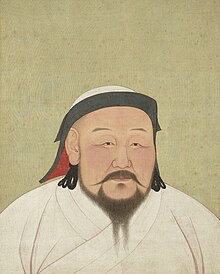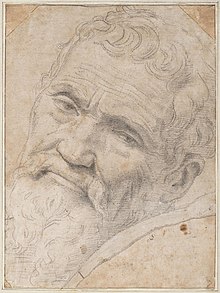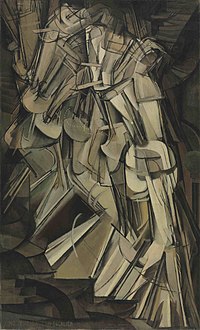February 18 is the 49th day of the year in the Gregorian calendar. There are 316 days remaining until the end of the year (317 in leap years).
Holidays

- Christian Feast Day:
- Earliest day on which Wife’s Day or Konudagur can fall, while February 24 is the latest; celebrated on Sunday between 18 and 24 February (Iceland)
- Dialect Day (Amami Islands, Japan)
- Independence Day, celebrates the independence of the Gambia from the United Kingdom in 1965.
- National Democracy Day, celebrates the 1951 overthrow of the Rana dynasty (Nepal)
- Sepandārmazgān or “Women’s Day” (Zoroastrian Iran)
History
In 1229, The Sixth Crusade: Frederick II, Holy Roman Emperor signs a ten-year truce with al-Kamil, regaining Jerusalem, Nazareth, and Bethlehem with neither military engagements nor support from the papacy.
In 1268, The Livonian Brothers of the Sword are defeated by Dovmont of Pskov in the Battle of Rakvere.
In 1294, Kublai Khan, Mongolian emperor (b. 1215) dies. He was born Kublai and also known by the temple name Shizu was the fifth Khagan (Great Khan) of the Ikh Mongol Uls (Mongol Empire), reigning from 1260 to 1294, and the founder of the Yuan Dynasty, a division of the Mongol Empire. Kublai was the second son of Tolui and Sorghaghtani Beki, and a grandson of Genghis Khan. He succeeded his older brother Möngke as Khagan in 1260, but had to defeat his younger brother Ariq Böke in a succession war lasting until 1264. This episode marked the beginning of disunity in the empire. Kublai’s real power was limited to China and Mongolia, though as Khagan he still had influence in the Ilkhanate and, to a far lesser degree, in the Golden Horde. If one counts the Mongol Empire at that time as a whole, his realm reached from the Pacific to the Black Sea, from Siberia to modern day Afghanistan – one fifth of the world’s inhabited land area.
In 1332, Amda Seyon I, Emperor of Ethiopia begins his campaigns in the southern Muslim provinces.
In 1478, George, Duke of Clarence, convicted of treason against his older brother Edward IV of England, is executed in private at the Tower of London.
In 1493, Columbus reaches the Azores.
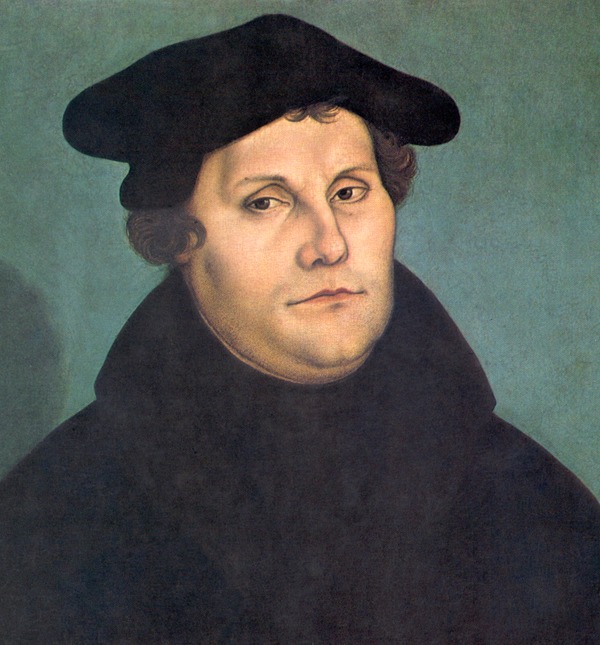
In 1546, Martin Luther, German priest and theologian, leader of the Protestant Reformation (b. 1483) dies after a apoplectic stroke deprived him of his speech, at 2:45 a.m. on 18 February 1546, aged 62, in Eisleben, the city of his birth. He was buried in the Castle Church in Wittenberg, beneath the pulpit. He was a German professor of theology, composer, priest, former monk and a seminal figure in the Protestant Reformation. Luther came to reject several teachings and practices of the Late Medieval Catholic Church. He strongly disputed the claim that freedom from God’s punishment for sin could be purchased with money. He proposed an academic discussion of the power and usefulness of indulgences in his Ninety-Five Theses of 1517. His refusal to retract all of his writings at the demand of Pope Leo X in 1520 and the Holy Roman Emperor Charles V at the Diet of Worms in 1521 resulted in his excommunication by the Pope and condemnation as an outlaw by the Emperor.
Luther taught that salvation and subsequently eternal life is not earned by good deeds but is received only as a free gift of God’s grace through faith in Jesus Christ as redeemer from sin. His theology challenged the authority and office of the Pope by teaching that the Bible is the only source of divinely revealed knowledge from God and opposed sacerdotalism by considering all baptized Christians to be a holy priesthood. Those who identify with these, and all of Luther’s wider teachings, are called Lutherans even though Luther insisted on Christian or Evangelical as the only acceptable names for individuals who professed Christ.
His translation of the Bible into the vernacular (instead of Latin) made it more accessible, which had a tremendous impact on the church and German culture. It fostered the development of a standard version of the German language, added several principles to the art of translation, and influenced the writing of an English translation, the Tyndale Bible. His hymns influenced the development of singing in churches. His marriage to Katharina von Bora set a model for the practice of clerical marriage, allowing Protestant clergy to marry.
In 1564, Michelangelo, Italian sculptor and painter (b. 1475) dies in Rome in 1564, at the age of 88 (three weeks before his 89th birthday). His body was taken from Rome for interment at the Basilica of Santa Croce, fulfilling the maestro’s last request to be buried in his beloved Florence. He was an Italian sculptor, painter, architect, poet, and engineer of the High Renaissance who exerted an unparalleled influence on the development of Western art. Considered to be the greatest living artist during his lifetime, he has since also been described as one of the greatest artists of all time. Despite making few forays beyond the arts, his versatility in the disciplines he took up was of such a high order that he is often considered a contender for the title of the archetypal Renaissance man, along with his fellow Italian Leonardo da Vinci.
A number of Michelangelo’s works in painting, sculpture, and architecture rank among the most famous in existence. His output in every field of interest was prodigious; given the sheer volume of surviving correspondence, sketches, and reminiscences taken into account, he is the best-documented artist of the 16th century.
Two of his best-known works, the Pietà and David, were sculpted before the age of thirty. Despite his low opinion of painting, Michelangelo also created two of the most influential frescoes in the history of Western art: the scenes from Genesis on the ceiling of the Sistine Chapel in Rome, and The Last Judgment on its altar wall. As an architect, Michelangelo pioneered the Mannerist style at the Laurentian Library. At the age of 74, he succeeded Antonio da Sangallo the Younger as the architect of St. Peter’s Basilica. Michelangelo transformed the plan, the western end being finished to Michelangelo’s design, the dome being completed after his death with some modification.
In a demonstration of Michelangelo’s unique standing, he was the first Western artist whose biography was published while he was alive. Two biographies were published of him during his lifetime; one of them, by Giorgio Vasari, proposed that he was the pinnacle of all artistic achievement since the beginning of the Renaissance, a viewpoint that continued to have currency in art history for centuries.
In his lifetime he was also often called Il Divino (“the divine one”). One of the qualities most admired by his contemporaries was his terribilità, a sense of awe-inspiring grandeur, and it was the attempts of subsequent artists to imitate Michelangelo’s impassioned and highly personal style that resulted in Mannerism, the next major movement in Western art after the High Renaissance.
In 1637, Eighty Years’ War: Off the coast of Cornwall, England, a Spanish fleet intercepts an important Anglo–Dutch merchant convoy of 44 vessels escorted by 6 warships, destroying or capturing 20 of them.
In 1642, Heads of influential Dutch colonial families petition for representation in the New Netherland government.
In 1678, “The Pilgrim’s Progress” was published by John Bunyan.
In 1745, – The city of Surakarta, Central Java is founded on the banks of Bengawan Solo River, and becomes the capital of the Kingdom of Surakarta.
In 1752, The Pennsylvania Gazette publishes an advertisement proposing to insure Philadelphia homes against fire.
In 1766, – A mutiny by captive Malagasy begins at sea on the slave ship Meermin, leading to the ship’s destruction on Cape Agulhas in present-day South Africa and the recapture of the instigators
In 1781, – Fourth Anglo-Dutch War: Captain Thomas Shirley opens his expedition against Dutch colonial outposts on the Gold Coast of Africa (present-day Ghana).
In 1793, The U.S. Supreme Court rules that a citizen of one state may sue a citizen of another state in Federal Court.
In 1797, – French Revolutionary Wars: Sir Ralph Abercromby and a fleet of 18 British warships invade Trinidad.
In 1804, The first university chartered by an Act of Congress, Ohio University, Athens, Ohio.
In 1814, – Napoleonic Wars: The Battle of Montereau.
In 1828, More than 100 vessels destroyed in a storm, Gibraltar.
In 1849, First regular steamboat service to California started with the arrival of the “California“.
In 1850, The California Legislature created nine San Francisco Bay Area counties.
In 1856, American (Know-Nothing) Party abolishes secrecy.
In 1861, In Montgomery, Alabama, Jefferson Davis is inaugurated as the provisional President of the Confederate States of America.
In 1861, With Italian unification almost complete, Victor Emmanuel II of Piedmont, Savoy and Sardinia assumes the title of King of Italy.
In 1865, American Civil War: Union forces under Major General William T. Sherman set the South Carolina State House on fire during the burning of Columbia.
In 1873, Bulgarian revolutionary leader Vasil Levski is executed by hanging in Sofia by the Ottoman authorities.
In 1878, John Tunstall is murdered by outlaw Jesse Evans, sparking the Lincoln County War in Lincoln County, New Mexico.
In 1884, Tolstoy wrote a book called “What I Believe“, in which he openly confessed his Christian beliefs. He affirmed his belief in Jesus Christ‘s teachings and was particularly influenced by the Sermon on the Mount, and the injunction to turn the other cheek, which he understood as a “commandment of non-resistance to evil by force” and a doctrine of pacifism and nonviolence.
In 1885, The Adventures of Huckleberry Finn by Mark Twain is published in the United States.
In 1896, The Cave of the Winds at Niagara Falls is practically dry for the first time in 50 years.
In 1900, Second Boer War: Imperial forces suffer their worst single-day loss of life on Bloody Sunday, the first day of the Battle of Paardeberg.
In 1901, H. Cecil Booth patented a dust removing suction cleaner.
In 1906, Edouard de Laveleye forms the Belgian Olympic Committee in Brussels.
In 1907, 600,000 tons of grain are sent to Russia to relieve the famine there.
In 1908, first US postage stamps in coils issued.
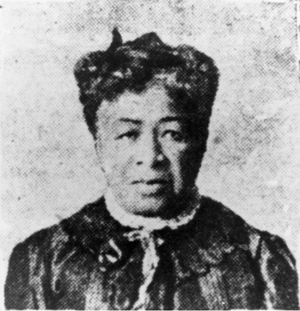
In 1910, Lucy Stanton, American activist (b. 1831) dies. She was an American abolitionist and feminist figure, notable for being the first African American to complete a four-year course of a study at a college or university. She completed a Ladies Literary Course from Oberlin College in 1850.
Lucy Stanton Day’s life story is, in countless ways, a testament to the many strong, resilient, and radical women that participated in the first wave of American feminism. Her passionate commitment to abolition especially connected her to her radical female predecessors, such as Angelina E. Grimké, who, as early as 1836, linked the abolition of slavery to the Christian duty of women.
Fresh out of school, Lucy Stanton began working as a principal at another free school in Cleveland. On November 25, 1852, Stanton married William Howard Day, whom she had met at Oberlin College. Following this marriage, Stanton worked both as a librarian, and then later as an editor in Cleveland’s first abolitionist newspaper, “”The Alienated American””. In 1854 she became the first African American published fiction writer with a story in this same newspaper, entitled “Charles and Clara Hays.” Stanton and Day had a daughter, Florence Day, in 1858 before Day abandoned his wife and child, leaving for England in 1859. Stanton successfully received a divorce from him in 1872. Following Day’s abandonment, Stanton worked as a seamstress in Cleveland, before continuing her activism. Her affiliation with the Cleveland Freedman Association led to her being sent first to Georgia (U.S. state) in 1866 and then to Mississippi, both to teach newly freed slaves. While in Mississippi, Stanton met, and then in 1878 married, Levi Sessions. The couple moved to Tennessee where Stanton continued to be a supporter of women’s and African Americans’ rights by working with organizations such as the Women’s Relief Corps, the Order of Eastern Star, the Women’s Christian Temperance Union, and the African Methodist Episcopal Church.
Stanton died in Los Angeles, California on Feb. 18, 1910 at the age of 78.
In 1911, The first official flight with air mail takes place from Allahabad, United Provinces, British India (now India), when Henri Pequet, a 23-year-old pilot, delivers 6,500 letters to Naini, about 10 kilometres (6.2 mi) away.
In 1913, Pedro Lascuráin becomes President of Mexico for 45 minutes; this is the shortest term to date of any person as president of any country.
In 1913, the famous French painting, “Nude Descending a Staircase“, by the French artist, Marcel Duchamp, was displayed at an “Armory Show” in New York City. The work was labeled as America’s first look at modern art. Critics called the work “scandalous” and “meaningless”. Yeah, well, it’s a beautiful, classic work of art no matter if it looks like an android doing The Twist.
In 1930, While studying photographs taken in January, Clyde Tombaugh discovers Pluto.
In 1930, Elm Farm Ollie becomes the first cow to fly in a fixed-wing aircraft and also the first cow to be milked in an aircraft.
In 1930, Originally thought to be ninth planet of our solar system, Pluto, was discovered by Claude W. Tombaugh at Lowell Observatory in Flagstaff, Arizona; it was announced Mar 13. Pluto was originally considered the ninth planet from the Sun. Its status as a major planet fell into question following further study of it and the outer Solar System over the next 75 years. Starting in 1977 with the discovery of the minor planet Chiron, numerous icy objects similar to Pluto with eccentric orbits were found. The scattered disc object Eris, discovered in 2005, is 27% more massive than Pluto. The understanding that Pluto is only one of several large icy bodies in the outer Solar System prompted the International Astronomical Union (IAU) to formally define “planet” in 2006. This definition excluded Pluto and reclassified it as a member of the new “dwarf planet” category (and specifically as a plutoid).
In 1932, The Empire of Japan declares Manzhouguo (the obsolete Chinese name for Manchuria) independent from the Republic of China.
In 1938, During the Nanking Massacre tha Nanking Safety Zone International Committee is renamed “Nanking International Rescue Committee” and the safety zone in place for refugees falls apart.
In 1939, Golden Gate International Exposition opens on Treasure Island (which was built for the occasion) in San Francisco Bay.
In 1942, World War II: The Imperial Japanese Army begins the systematic extermination of perceived hostile elements among the Chinese in Singapore.
In 1943, The Nazis arrest the members of the White Rose movement.
In 1943, Joseph Goebbels delivers his Sportpalast speech.
In 1946, Sailors of the Royal Indian Navy mutiny in Bombay harbour, from where the action spreads throughout the Provinces of British India, involving 78 ships, twenty shore establishments and 20,000 sailors
In 1954, The first Church of Scientology is established in Los Angeles, California.
In 1955, Operation Teapot: Teapot test shot “Wasp” is successfully detonated at the Nevada Test Site with a yield of 1.2 kilotons. Wasp is the first of fourteen shots in the Teapot series.
In 1957, Kenyan rebel leader Dedan Kimathi is executed by the British colonial government.
In 1957, Walter James Bolton becomes the last person legally executed in New Zealand.
In 1957, COVER OF TIME Rev. MARTIN LUTHER KING, Jr.
In 1965, The Gambia becomes independent from the United Kingdom.
In 1967, The National Art Gallery in Washington agrees to buy a Da Vinci for a record $5 million.
In 1968, British adopt year-round daylight savings time.
In 1969, Hawthorne Nevada Airlines Flight 708 crashes into Mount Whitney killing all on board.
In 1970, The Chicago Seven are found not guilty of conspiring to incite riots at the 1968 Democratic National Convention.
In 1970, US president Nixon launches “Nixon-doctrine”.
In 1970, Five of the “Chicago Seven” (Rennie Davis, David Dellinger, Tom Hayden, Abbie Hoffman, and Jerry Rubin) are found Guilty of crossing state lines to incite a riot at the 1968 Democratic convention, but are found not guilty of conspiracy.
In 1972, The California Supreme Court in the case of People v. Anderson, (6 Cal.3d 628) invalidates the state’s death penalty and commutes the sentences of all death row inmates to life imprisonment.
In 1977, The Space Shuttle Enterprise test vehicle is carried on its maiden “flight” on top of a Boeing 747.
In 1978, The first Ironman Triathlon competition takes place on the island of Oahu and is won by Gordon Haller.
In 1979, Snow falls in the Sahara Desert in southern Algeria for the only time in recorded history.
In 1980, Pierre Elliott Trudeau’s Liberal Party wins Canada’s elections.
In 1981, President Reagan’s first budget proposed the largest tax cuts and spending curbs ever for an administration, but also a $90 billion increase in defense spending over four years.
In 1982, Mexico devalues the peso by 30 percent to fight an economic slide.
In 1983, Thirteen people die and one is seriously injured in the Wah Mee massacre in Seattle, Washington. It is said to be the largest robbery-motivated mass-murder in U.S. history.
In 1985, Gen. William C. Westmoreland and CBS reached an out-of-court settlement in Westmoreland’s $120 million libel suit that resulted from a CBS News documentary, “The Uncounted Enemy: A Vietnam Deception.”
In 1987, The executives of the Girl Scout movement decided, because the older girls wanted a change, that it was time to change the color of the scout uniform from the traditional Girl Scout green to the newer Girl Scout blue.
In 1987, President Reagan, responding to questions that his chief of staff, Donald T. Regan, might be on the way out, said, “This is up to him.” (Regan did resign, nine days later.)
In 1988, Soviet Communist Party leaders dropped former Moscow party chief Boris N. Yeltsin from the ruling Politburo.
In 1988, Anthony M. Kennedy was sworn in as the 104th justice of the U.S. Supreme Court.
In 1990, In general elections, Japan’s conservative governing party held onto its 34-year-old majority in the Parliament’s lower house.
In 1991, The IRA explodes bombs in the early morning at Paddington station and Victoria station in London.
In 1992, Deposed junk bond king Michael R. Milken and many of his colleagues from the failed brokerage firm of Drexel Burnham Lambert agree to pay an additional $800 million to settle numerous lawsuits pending against the firm.
In 1992, in the New Hampshire primary, President Bush won the Republican contest while challenger Patrick Buchanan placed a considerably strong second; among Democrats, Paul Tsongas came in first.
In 1993, President Clinton hosted a campaign-style rally at St. Louis’ Union Station to enlist citizen support for his economic plan.
In 1994, Delegates from 130 countries agreed at a United Nations conference that there must be new cuts in greenhouse gas emissions to halt global warming.
In 1995, The NAACP replaced veteran chairman William Gibson with Myrlie Evers-Williams, the widow of slain civil rights leader Medgar Evers, after the rank-and-file declared no confidence in Gibson’s leadership.
In 1997, Bill Richardson began work as U.S. ambassador to the United Nations.
In 1997, Astronauts on the space shuttle Discovery completed their tune up of the Hubble Space Telescope after 33 hours of spacewalking; the Hubble was then released using the shuttle’s crane.
In 1998, Money shortages in Russia shut three plants that produce nuclear weapons.
In 1998, Two white separatists arrested in Nevada, accused of plotting bacterial attack on New York City subways.
In 1998, President Clinton’s foreign policy team encountered jeers during a town meeting at Ohio State University while trying to defend the administration’s threat to bomb Iraq into compliance with UN weapons edicts.
In 1999, The Clinton administration warned Serbian President Slobodan Milosevic to choose peace with ethnic Albanians in Kosovo, or face a devastating military strike.
In 2000, Iranians vote in an election that gives reformers a majority in the parliament, long a bastion of hard-liners.
In 2001, FBI agent Robert Hanssen is arrested for spying for the Soviet Union. He is ultimately convicted and sentenced to life imprisonment.
In 2001, Seven-time NASCAR Sprint Cup Series champion Dale Earnhardt dies in an accident during the Daytona 500.
In 2001, Inter-ethnic violence between Dayaks and Madurese breaks out in Sampit, Indonesia, that will ultimately result in more than 500 deaths and 100,000 Madurese displaced from their homes.

In 2001, Dale Earnhardt, (Ralph Dale Earnhardt ) American race car driver (b. 1951) dies at the age of 49 when he sustained a fatal basilar skull fracture after crashing in the race’s final lap. He has been inducted into numerous halls of fame, including the inaugural class of the NASCAR Hall of Fame in 2010. He was known professionally as Dale Earnhardt, was an American race car driver and team owner, best known for his involvement in stock car racing for NASCAR. He began his career in 1975 in the World 600 as part of the Winston Cup Series.
Regarded as one of the most significant NASCAR drivers, Earnhardt won a total of 76 Winston Cup races over the course of his career, including one Daytona 500 victory in 1998. He also earned seven NASCAR Winston Cup championships, tying for the most all-time with Richard Petty. His aggressive driving style earned him the nickname “The Intimidator“.
In 2003, Nearly 200 people die in the Daegu subway fire in South Korea.
In 2004, Up to 295 people, including nearly 200 rescue workers, die near Neyshabur in Iran when a runaway freight train carrying sulfur, petrol and fertilizer catches fire and explodes.
In 2007, Terrorist bombs explode on the Samjhauta Express in Panipat, Haryana, India, killing 68 people.
In 2013, Armed robbers steal a haul of diamonds worth $50 million during a raid at Brussels Airport in Belgium.
In 2014, At least 76 people are killed and hundreds are injured in clashes between riot police and demonstrators in Kiev, Ukraine.

